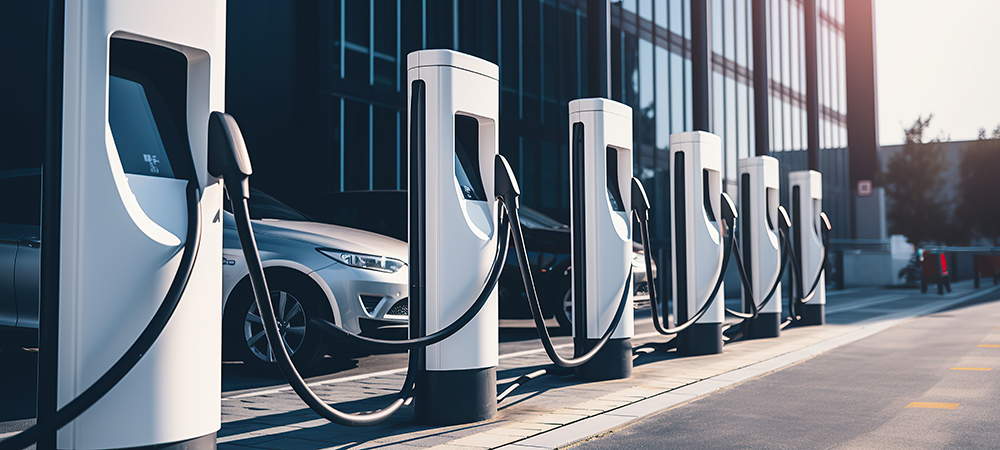We hear from Mark Winn, Head of EV Strategy, SMS, on the importance of collaboration to embrace and enhance the future of our EV infrastructures.

Not all EV charging infrastructure in the UK is currently fit for purpose. Those involved in the rollout of public EV chargers – local authorities; developers and landowners, in partnership with EV charging and energy infrastructure experts like SMS – have achieved a lot in a short timeframe. Yet the needs of EV drivers are still not adequately being met.
Our own research has found that 70% of EV drivers still have limited public charging options in their area. It was also found that 77% have been unable or unwilling to access a public EV charge point either because it was out of order, unavailable, incompatible with their vehicle or in an area that felt unsafe.
This needs to change. All EV drivers should be able to access public charge points as and when they need them. To ensure a satisfactory experience when it comes to EV charging, there needs to be greater collaboration between players in the market. Steps are being taken in the right direction with the recently established ChargeUK, a trade body for the EV charging industry, which is publicly committed to investing billions of pounds to deliver and operate a world-class charging infrastructure by 2030. But collectively we must create a comprehensive roadmap for the rollout of public chargers centred around the all-important three Rs – Right location. Right time. Right speed.
What is required to take EV infrastructure to the next level?
One of the main stumbling blocks when it comes to infrastructure, is that there is no clear responsibility for the rollout of the UK’s public EV chargers. The UK government is working closely with local authorities in a bid to speed up installations, but with budget deficits being felt by boroughs nationwide, there is a danger that certain regions may be subject to an ‘EV charge point divide’. To help avoid this, the government has committed up to £1.6 billion of funding in the form of grants, which includes at least £500m to support local authorities to plan and deliver local public charging infrastructure, as well as a £450m Local EV Infrastructure (LEVI) fund.
However, public investment alone won’t cut it; private funds are what is needed to really drive the rollout forward. According to the Green Finance Institute, the investment needed to install 300,000 EV charge points by 2030 sits at £20 billion, making the government grants a drop in the EV ocean.
Therefore, in order to ensure the right level of public EV charging is available across the UK, it is critical that – alongside the government and local authorities – property developers and landowners, as well as the retail, hospitality and leisure industries are part of the mix. But the secret to success is working together, not trying to fast-track rollout on a solo expedition, which could – and is – coming at the expense of consumers.
EV charging requires a tailored and intelligent approach
There is no ‘one-size-fits-all’ approach to EV charging implementation. Different charging speeds are better suited to certain locations i.e. overnight charging in residential buildings and hotels, and rapid or ultra-rapid charging at supermarkets, service stations and shopping centres.
However, in a race to increase the number of EV chargers and monopolise the market, we’re seeing certain EV charge point operators (CPOs) prioritise quantity over quality. Too often the wrong speed charging points are being installed in the wrong location without proper consultation. Drivers have been left either unable to use them or waiting significant periods of time to access a station.
To ensure all EV chargers meet the three Rs going forward, organisations planning on deploying public charge points must work with a partner that has a profound understanding of the marketplace and the energy industry. Without intelligent collaborations, haphazard EV infrastructure is set to continue, and we could end up with significant issues beyond the wrong chargers being installed in the wrong locations. It could also result in overbuilds, poor maintenance, and further discourage consumers from switching to EVs.
Open access is the way forward
To date, the majority of the UK’s public EV infrastructure has been developed by private or closed network operators. This fractured approach has resulted in a market that requires EV drivers to have a variety of memberships, accounts and RFID cards to access all publicly available chargers, resulting in below-par customer experience.
There is a better way though. The Open Charge Point Protocol (OCPP) is an open-source communication standard for EV charging hardware and charge point software companies. Any EV charge point that is OCPP-compliant can be configured to run any other OCPP-compliant software.
By choosing OCPP from the outset, EV charge points will not be constricted by fixed capabilities for the duration of their lifespan (which is often the case with hardware installed on closed charging networks). Instead, they will have the ability to be customised and improved with the latest software upgrades.
Moving forward, as an industry, we collectively need to ensure we are doing all that we can to roll out EV infrastructure as quickly as possible, with a guarantee it’s fully fit for purpose. This means future-proofing charge points by taking the OCPP approach, so EV infrastructure is open to all and chargers stand the test of time. It’s also crucial businesses partner with CPOs that are highly reputable and experienced in the energy market to make certain they’re installing the optimum chargers in the right places. It is only by working together that we can remedy the current issues with EV infrastructure and make sure it hits its all-important 2030 targets.




